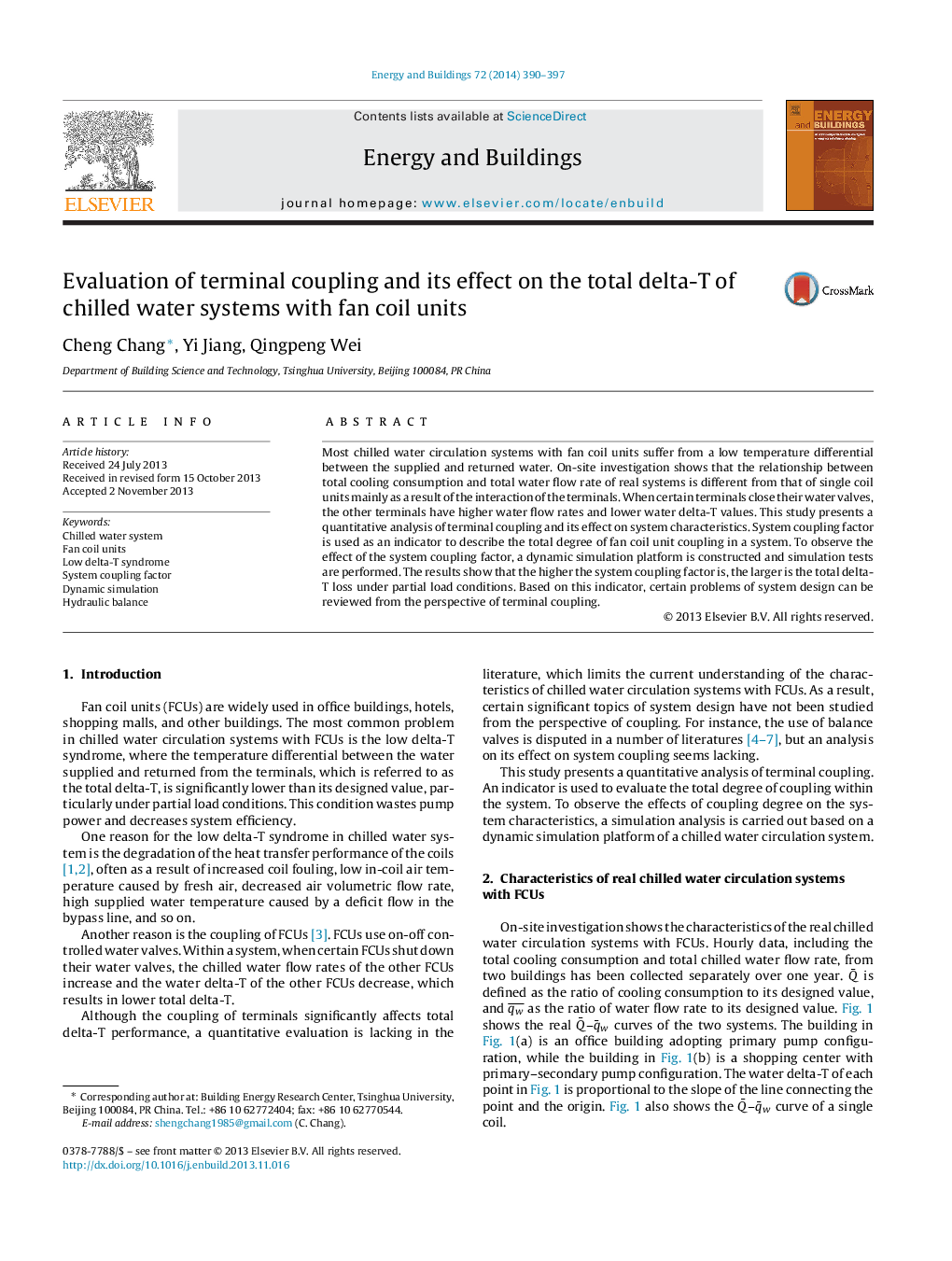| Article ID | Journal | Published Year | Pages | File Type |
|---|---|---|---|---|
| 263039 | Energy and Buildings | 2014 | 8 Pages |
•A dynamic simulation platform for chilled water system is constructed.•System coupling factor is defined to evaluate the coupling degree in FCU system.•Increasing system coupling factor will increase system delta-T loss.•Adding resistance on non-terminal branches should be avoided.
Most chilled water circulation systems with fan coil units suffer from a low temperature differential between the supplied and returned water. On-site investigation shows that the relationship between total cooling consumption and total water flow rate of real systems is different from that of single coil units mainly as a result of the interaction of the terminals. When certain terminals close their water valves, the other terminals have higher water flow rates and lower water delta-T values. This study presents a quantitative analysis of terminal coupling and its effect on system characteristics. System coupling factor is used as an indicator to describe the total degree of fan coil unit coupling in a system. To observe the effect of the system coupling factor, a dynamic simulation platform is constructed and simulation tests are performed. The results show that the higher the system coupling factor is, the larger is the total delta-T loss under partial load conditions. Based on this indicator, certain problems of system design can be reviewed from the perspective of terminal coupling.
